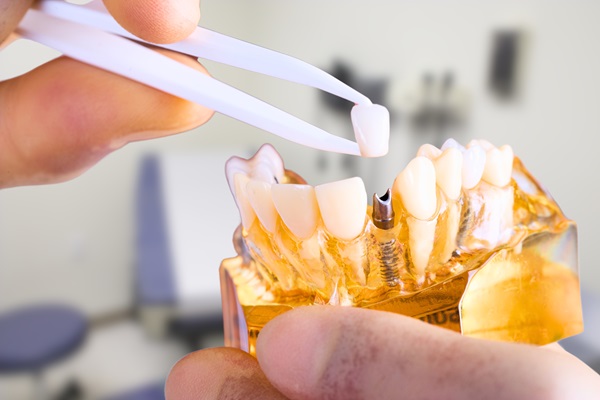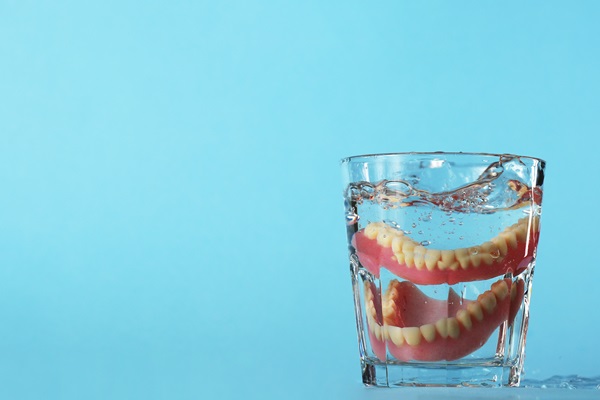Can a Broken Tooth Be Saved?

Dealing with a broken tooth? Read on to learn about how a dentist can help. A broken tooth is one of those injuries that tend to occur at the worst possible times. You’re having fun one second, and your tooth is broken the next. It might be a tasty treat you bite into, a fall, or a blow to the face that does the job. Fortunately, there are multiple ways a dentist can go about saving a broken tooth.
How a dentist saves a broken tooth
One broken tooth is enough to ruin the way your smile looks regardless of how healthy the rest of your teeth look. It also puts your oral health at risk since food particles and bacteria can become lodged in the crevices created by the damage. Some of a tooth’s enamel also comes off when its structures become damaged. Enamel being lost increases the risk of the tooth becoming damaged by decay.
The treatment recommended by a dentist for a broken tooth depends on the severity of the damage to the tooth. Some of the ways a dentist might opt to fix a damaged tooth include:
1. Composite bonding
This treatment involves using a composite resin made from mixtures of glass and plastics to rebuild and repair damaged teeth. The composite is matched with the shade of the patient’s teeth, so any repairs made do not stand out.
Composite bonding is a non-invasive procedure that does not require permanent alterations to the patient’s tooth. The procedure can be completed in as little as 45 minutes, and it is typically recommended for minor damage that does not affect a tooth’s pulp chamber.
2. Crowns
Crowns are typically recommended for moderate to severe breaks. The crown helps to hold what’s left of the tooth together, and it protects it from the bite forces generated while chewing. Placing a crown on a tooth involves removing enamel from its sides, so the crown fits snuggly on it. It is a permanent alteration that cannot be reversed in the future. This means the prepared tooth will always need a crown on it to serve as its artificial enamel.
Crowns also restore the aesthetics of damaged teeth, and they can be matched with the color of the patient’s other teeth.
3. Root canal
Root canal therapy is recommended when damage to a tooth reaches its pulp chamber. The chamber holds nerves, connective tissues, and blood vessels. It is sealed off from the rest of the tooth to protect the soft tissues from acids and bacteria in the mouth. Severe damage to a tooth can leave this area open, making the soft tissues in the pulp chamber vulnerable to infection.
A root canal is used to remove the soft tissues in the pulp chamber and seal the area back up.
We can fix your broken tooth
A broken tooth requires treatment regardless of how minor it is. Call or visit our South Bend clinic to set up an appointment.
Request an appointment here: https://www.michianafamilydental.com or call Michiana Family Dental at (574) 349-2073 for an appointment in our South Bend office.
Check out what others are saying about our services on Yelp: Read our Broken Tooth Yelp reviews.
Recent Posts
A missing tooth can create difficulties with eating, speaking, and smiling. Fortunately, with the help of a dental implants, a missing tooth can be easily replaced.Dental implants are small, titanium, screw-shaped prosthetics that take the place of teeth roots. It is important to distinguish that a dental implant itself does not actually replace the missing…
An article by GlaxoSmithKline Consumer Healthcare states that more than 18 million people wear partial dentures. Anyone who has been considering getting partials to improve their speech, ability to chew, and even their appearance is not alone. It helps to have the proper information beforehand, though. Partials are created from a wide variety of materials, each…
A fractured, chipped, or broken tooth occurs when patients have a crack in the tooth. Some cracks may appear small, but others may cause a break or split within the tooth structure. Most people can suffer a tooth break, but the most common demographics include children and older adults. To fix the tooth, some patients…
Denture adjustment is a necessary procedure that must be performed if your dentures no longer fit your mouth. Whether you have partial or complete dentures, these prompt your gums and soft tissues to adjust. Once the dentures have settled, they will also be likely to change over time. You may experience difficulty chewing or feel…


